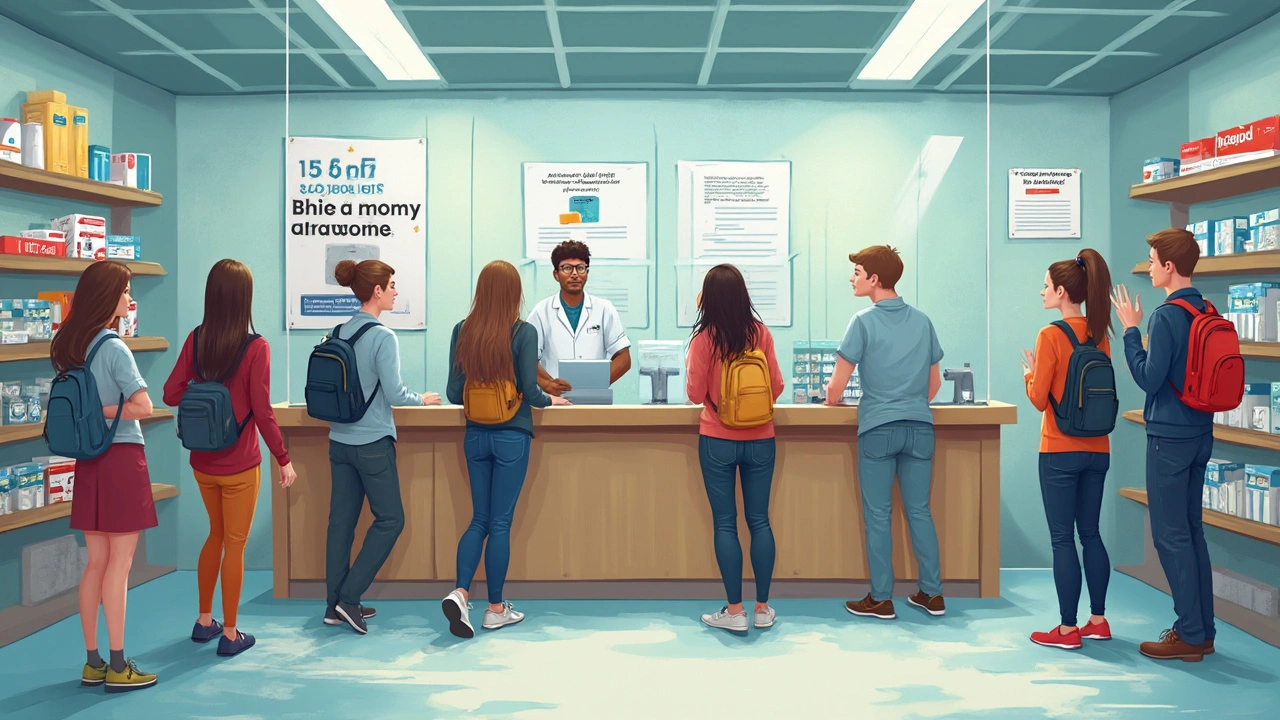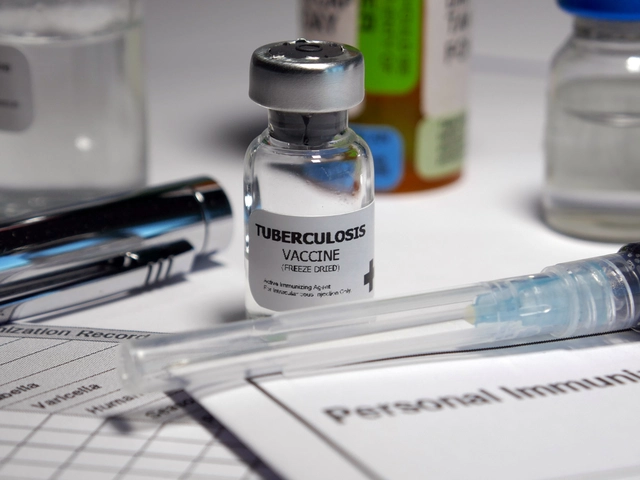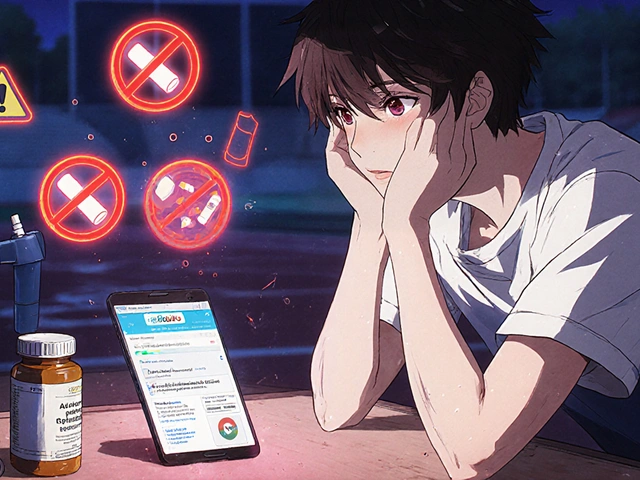Why Pharmacy Bills Are Out of Control for Students—and What’s Actually Draining Your Wallet
Ever go to pick up your prescription and nearly faint at the price? You’re not alone. Pharmacy bills for college students have shot up in the past few years, and it’s not just about the sticker shock at the counter. A major reason is health insurance gaps. Most Aussie students either have basic coverage or skip insurance altogether, hoping they’ll avoid the doctor during term. That’s a risky game. Even common meds like antibiotics or allergy pills can sting your wallet without coverage.
Now, inflation isn’t helping at all. Drug prices in Australia jumped around 4% in 2024 alone, outpacing regular inflation. And our cousins in the US? Some meds there doubled in price in less than two years, according to reports from the Kaiser Family Foundation. Why does this matter to you? Global price hikes trickle down; popular brands hike prices everywhere, even online. Add to that pharmacies’ markups, especially near big campuses, and you begin to see why it feels impossible to just grab your prescription and move on.
Textbooks already torch your budget, and let’s be honest, when you’ve got $40 left to survive the week, that antibiotic script feels like the final boss level. Lots of people try to just space out pills or skip doses. Bad idea—missing meds can mean missing classes, falling behind, or ending up in the ER, which comes with bills you really don’t want.
So where’s the money going?
- Brand-name medications (when a generic works just as well)
- Lack of familiarity with discount programs and apps
- Non-bulk buying (single blister packs cost a bomb compared to 3-month’s supply)
- Picking popular pharmacy chains in campus hotspots (they pay higher rent, you pay the difference)
- Paying for doctor’s scripts out-of-pocket because you don’t know you can see someone at uni for cheaper
It all adds up, and the numbers say it’s getting edge-of-the-seat bad. That’s why learning the hacks to slash those costs isn’t just good for your bank balance—it means you actually keep taking the meds your doctor recommended.

Tools, Tricks, and Discount Programs That Actually Slice Pharmacy Costs
You don’t have to be a coupon-collecting mastermind to save serious cash at the pharmacy. Thanks to tech, there are now tons of legit options for pharmacy savings—and a lot of them are right under your nose, or literally on your phone. Let’s get into the ways you can pay less starting now.
- Compare discount apps. Think GoodRx, but not just that. In the US, GoodRx is huge, but even Aussies can hunt for programs like GoodRx or their alternatives. There’s a handy breakdown of several on programs like GoodRx. Most of these sites show real-time prices at competing pharmacies. Just type your med’s name and suburb, and find out where it’s cheapest. No loyalty to one pharmacy anymore—you have options.
- Check your campus health center first. Most Aussie unis have on-site clinics with direct access to doctors AND often a little dispensary. They can prescribe and sometimes provide basic meds far cheaper than off-campus spots. If you’re on student health insurance, you might only pay the PBS (Pharmaceutical Benefits Scheme) co-payment, which caps prices for certain meds.
- Ask for generics every time. Name-brand drugs aren’t obliged to work better. Next time you get a prescription, ask the pharmacist if there’s a generic version with the same active ingredient but a way lower price.
- Look for pharmacy loyalty rewards. Some places offer reward points, deals, or even free scripts after a certain number of fills. Sure, it feels cheesy, but if you’re coming back for an asthma inhaler or allergy tabs every month, those benefits stack up.
- Order early and in bulk if you can. If your doctor says it’s safe, ask for a script with repeats or one that covers a three-month supply. Smaller packs sound cheaper per visit but cost more in the long run.
- Try mail order and licensed online pharmacies. Australia and the UK regulate pharmacies tightly, so you know what you’re getting is legit. Some reputable online spots even undercut your local shop by 30-40%.
- Tell your doc about your budget, not just your symptoms. Lots of prescribers don’t realize you’re struggling unless you say something. If they know you’re tight on cash, they’ll usually default to the most cost-effective options.
Here’s a quick look at how much you could be saving, just by changing your approach:
| Medication | Usual In-Store Price (Per Month, AUD) | Discount App Price (Low End, AUD) | Possible Yearly Savings |
|---|---|---|---|
| Loratadine (Allergy) | $18 | $9 | $108 |
| Oral Contraceptive | $23 | $13 | $120 |
| Antibiotic (amoxicillin) | $16 | $10 | $72 |
| Inhaler (Salbutamol) | $22 | $14 | $96 |
This table shows typical savings when you compare your regular in-store costs to online or app-powered discounts. That’s a couple hundred bucks a year—easy.
Side tip: Don’t fall for ‘herbal’ or influencer-promoted supplements unless a trusted doctor or pharmacist backs it. Not only can those be a waste of cash, but sometimes they’re downright unsafe or just unregulated placebos. Stick to what works, and always cross-check what’s covered under the PBS—it’s not just a public insurance thing, it’s a goldmine for anyone needing common meds.

Protecting Your Health Without Blowing Your Student Budget
It’s tempting to just skip a fill or find the absolute cheapest site and order meds from some dodgy web page, but you don’t want to mess around when your health is on the line. Here’s how you balance budget and safety:
- Vet every online pharmacy. Always check for an Australian Pharmacy Council logo, or go through official sites like the Pharmacy Guild of Australia’s pharmacy locator. If a price looks way too low, that should be a huge red flag. Real deals exist, but nothing comes for nothing.
- Keep your script up to date. Don’t let your prescription expire ‘cause you spaced out on a doctor’s visit. Most student health centers let you book a script renewal online, sometimes with a telehealth consult which is great if you’re slammed around exam time.
- Watch out for phone scams and dodgy text links. Identity theft is at an all-time high, especially with health data. Never hand over your Medicare or personal info unless you’re 100% on an official, secure page.
- If you have repeat meds, shop around every semester. Pharmacies rotate which products are on promotion, and apps update regularly. What was the cheapest spot for allergy pills last semester could be overtaken by another two blocks away (or online) this month.
- Leverage your friends’ research. Got a mate who’s an absolute bloodhound for deals? Ask for their latest finds. There are private student Facebook groups and WhatsApp chats for uni students who swap info about current cheap scripts—sometimes including local insider tips.
- Push for campus workshops. Don’t be shy to nudge your student union or health office to run budgeting sessions about health care. It sounds a bit dry, but those walk-throughs have helped students snag hundreds in savings every year.
And one thing that gets missed a lot: the public system is your friend. If you’re struggling to afford meds, talk to your doctor or pharmacist about student hardship programs. There’s discreet support, from delayed payment options to emergency supplies. Nobody wants you choosing between meds and groceries.
Remember, a smart approach to managing your scripts isn’t about being tight-fisted—it’s about staying healthy and focused on your studies. If you feel lost, there are real humans at uni help desks who can talk you through options (I got epic advice from mine when Max, my golden retriever, ate my antibiotic—don’t ask). Your health is worth protecting, but nobody says you have to pay full price for it. Make sure you’re using all the tools and tricks out there in 2025—and keep an eye on your bank account, not just your grades.






Check out GoodRx’s Aussie equivalents like HealthEngine or PharmacyLink – they pull real‑time pricing from local chains, so you can compare before you even step foot on campus. The apps also let you lock in a discount code that you can apply at the checkout counter, shaving off 10‑20% on many generics. 📱💊